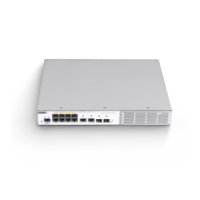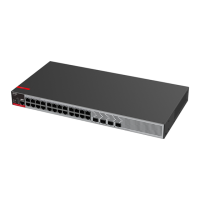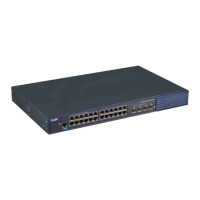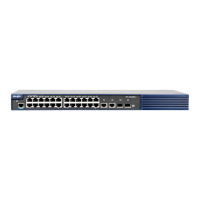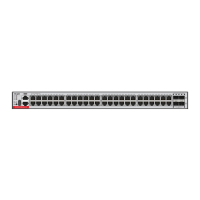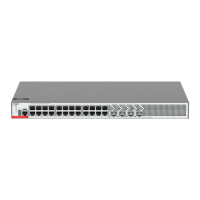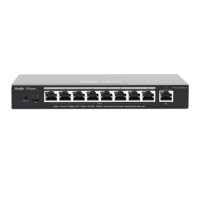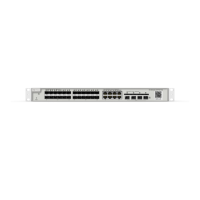Configuration Guide IPv6 Configuration
Configuring Address Conflict Detection
This section describes how to configure address conflict detection times. Address
conflict detection is mandatory to assign unicast addresses to interfaces. The goal is
to dectect the uniqueness of an address. The address conflict detection should be
carried out for the manual configuration address, the stateless auto-configuration
address or the statefull auto-configuration address. However, it is not necessary to
carry out the address conflict detection under the following two conditions:
The management prohibits the address conflict detection, namely, the number of
the neighbor solicitation messages sent for the address conflict detection is set to
0.
The configured anycast address can not be applied to the address conflict
detection.
Furthermore, if the address conflict detection function is not disabled on the interface,
the system will enable the address conflict detection process for the configured
address when the interface changes to the Up status from the Down status.
The following is the configuration procedure of the quantity of the neighbor solicitation
message sent for the address conflict detection:
The quantity of the neighbor solicitation message
sent for the address conflict detection. When it is
configured to 0, any neighbor solicitation message
is denied.
Enable the address conflict detection function on
the interface.
Use the no ipv6 nd dad attempts command to restore the default value. The
following is an example to configure the times of the neighbor solicitation (NS)
message sent for the address conflict detection on the SVI1:
Ruijie(config)# interface vlan 1
Ruijie(config-if)# ipv6 nd dad attempts 3
Ruijie(config-if)# end
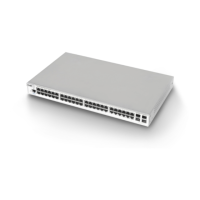
